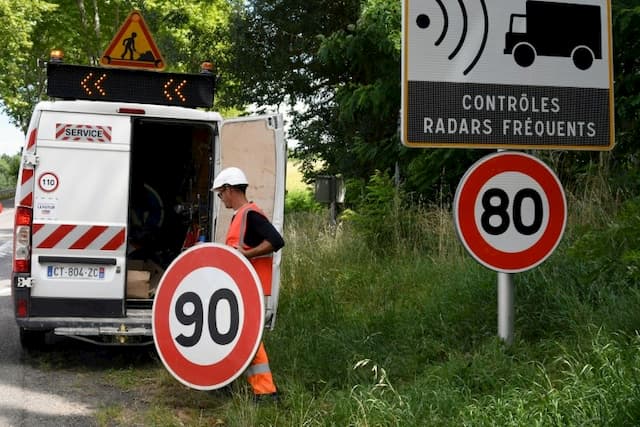Bike, carpool, 80 km/h … the Assembly is Examining the Mobility Bill

MPs begin the review of the draft mobility Bill, which includes a package for greener commuting and taxation of air transport.
The National Assembly seizes Monday, June 3, 2019 the sprawling text of law on mobility, which promises jousting around the easing of 80 km/h speed limit and taxation of air transport.
Already passed in the Senate at first reading, this bill, on the menu for two weeks, has already grown from fifty articles to more than one hundred and forty and has generated the filing of nearly 3,500 amendments , a record under this legislature.
It aims to “take care of the daily transport, providing answers to everyone and everywhere,” according to Transport Minister Elisabeth Borne, who will kick off debates in the hemicycle in the middle of afternoon.
The easing of 80 km/h speed limit in the debates
The demonstrations of “yellow vests” have confirmed the “feeling of injustice” of some French to live “in a country that advances at two speeds”: the France TGV and other networks whose state deteriorates, with commuting to work became “a real pain,” recognizes the minister.
The limitation to 80 km / h on secondary roads since July 2018, one of the detonators of the crisis of “yellow vests”, was invited in exchanges. Presidents of county councils will have the power to raise the maximum speed on certain sections, voted MPs in committee, after a green light from Prime Minister Edouard Philippe
LR officials consider this “turnaround” as “a trompe-l’oeil” and deplore the exclusion of the system of national roads, managed by the state. They demand to return to the Senate draft which also allowed prefects to pick up speed.
Another key topic is the creation of a “sustainable mobility” package , which will allow employers to reimburse their employees a maximum of 400 euros per year to encourage commuting by bicycle or carpooling.
Opposition and majority representatives, Barbara Pompili (LREM) in the lead, want to make this package mandatory. Ms. Borne is not hostile but wants to give a chance to bargain in companies, rather reluctant to this expensive device.
The text provides for other measures to encourage the use of bicycles (fight against theft, stationary parking in stations) and electric cars. Scooters, bicycles and other self-service Segways will be further regulated.

NGOs call for a “climate contribution”
Environmental NGOs globally consider the draft law “insufficient” in the fight against emissions of greenhouse gases transport. They called on parliamentarians to “jump-start” and demand a “climate contribution” on air tickets, which would be “complementary” to a possible elimination of the fiscal niche that benefits kerosene.
While Emmanuel Macron wants to “advance” on this issue at the European level, elected representatives of ecological sensitivity plead to send a signal at the national level.
In committee, the deputies agreed to create a contribution, about 30 million euros annually , levied on the excess revenue of the solidarity tax on airline tickets, called “Chirac tax”, to finance the others. modes of transport.
“It is absolutely necessary to go further,” says former “walker” Matthieu Orphelin, who suggests creating “an ecological contribution to take-off” on the Swedish model, an idea shared by the former Minister of Ecology Delphine Batho ( not registered).
The latter carries, along with the Rogue, including François Ruffin, another more radical proposal: to prohibit domestic flights for which the same route is achievable by train in five hours.
The bill has created tensions in certain sectors. On May 20, taxis, anxious to see their exclusive prerogatives reduced, as well as driving schools, reported against the upcoming reform of the license – some provisions of which appear in the text – and still ambulance workers have mobilized on the roads.
Public transport unions have denounced “failures in the social protection of employees” on the social framework of the opening to competition bus lines and coaches Ile-de-France.
Also on the program, the regulation of digital delivery platforms, such as Uber or Deliveroo, should help strengthen the social rights of workers on these platforms.
.
Enjoyed this? Get the week’s top France stories
One email every Sunday. Unsubscribe anytime.


